As a new parent, you’re always looking for ways to make your baby’s life easier. You want the best of the best when it comes to their health and happiness, so you’ll do anything you can to make sure they have access to the best possible supplies and care.
One thing that is often overlooked is water—but don’t let that happen to you! Water is one of the most important things in your baby’s life since it helps them grow and stay healthy. It also helps with digestion and keeps their skin healthy, so you must find out what type of water is best for your baby.
In this article, we’ll talk about purified vs. distilled water for infants and which one might be better for your child.
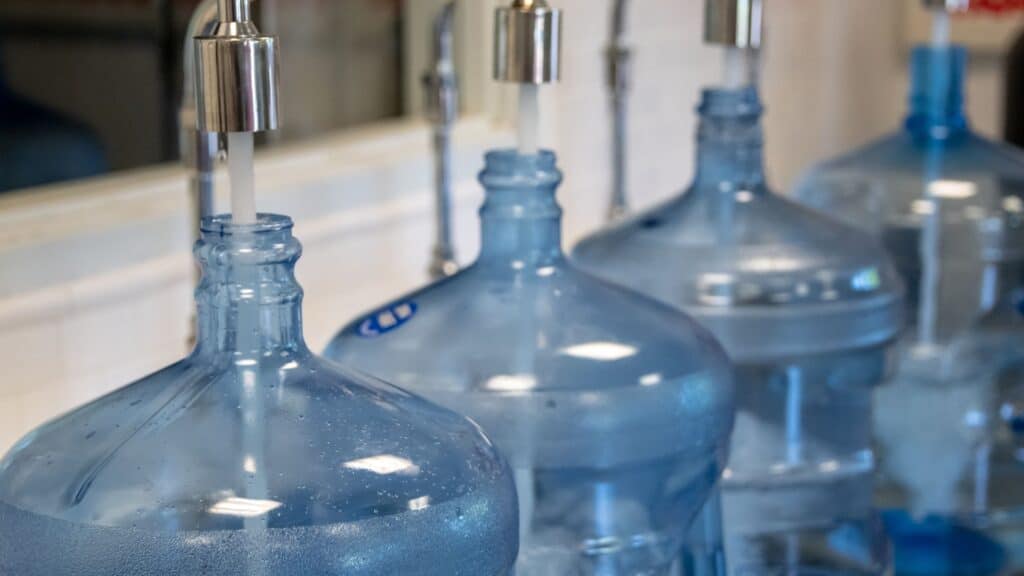
What is Purified Water?
In order to ensure that we are consuming safe and healthy water, it is recommended to drink purified water. Purification systems use various methods, such as distillation, reverse osmosis, and filtration, to remove harmful impurities and chemicals from the water. This not only provides health benefits by removing harmful bacteria but also helps to maintain the quality of the water.
In addition to removing harmful contaminants, purified water may also contain healthy minerals essential for our bodies. However, it is important to note that not all purification systems remove healthy minerals from the water. For those who prefer natural sources, spring water can be a good option as it is naturally filtered and contains a balance of healthy minerals.
Filtered water, whether from a home filtration system or purchased as purified bottled water, is a great alternative to tap water as it has been processed to remove harmful chemicals and impurities. This is especially important for infants who rely on clean water for their baby formula.
The process of purification can include the following:
Distillation
Distillation is a process commonly used to purify water by boiling water to separate it from all the impurities, such as chemical pollutants and metals. This method can effectively remove water impurities and chemical pollutants from the water, leaving behind pure and safe drinking water. However, it should be noted that while distillation can remove impurities, it may also remove natural minerals that are beneficial for water quality.
Deionization
Deionization is the process of removing ions from water. It can be done using a number of different methods, including ion exchange resins and electrodialysis. Deionized water is used as drinking water or in other applications requiring pure water.
Reverse Osmosis
Reverse osmosis is a water purification process that uses a semi-permeable membrane to remove contaminants from water. The membrane is made of cellulose or synthetic material, and it allows pure water to pass through but blocks other molecules, including salt, minerals, and bacteria.
The process uses pressure to force water through the membrane, which creates a stream of concentrated salt-free water on one side and a concentrated brine solution on the other. Reverse osmosis can also be used to desalinate seawater and make it drinkable.
Purified water is often used as a substitute for tap water in areas where tap water contains large quantities of minerals or other impurities that affect taste or appearance.
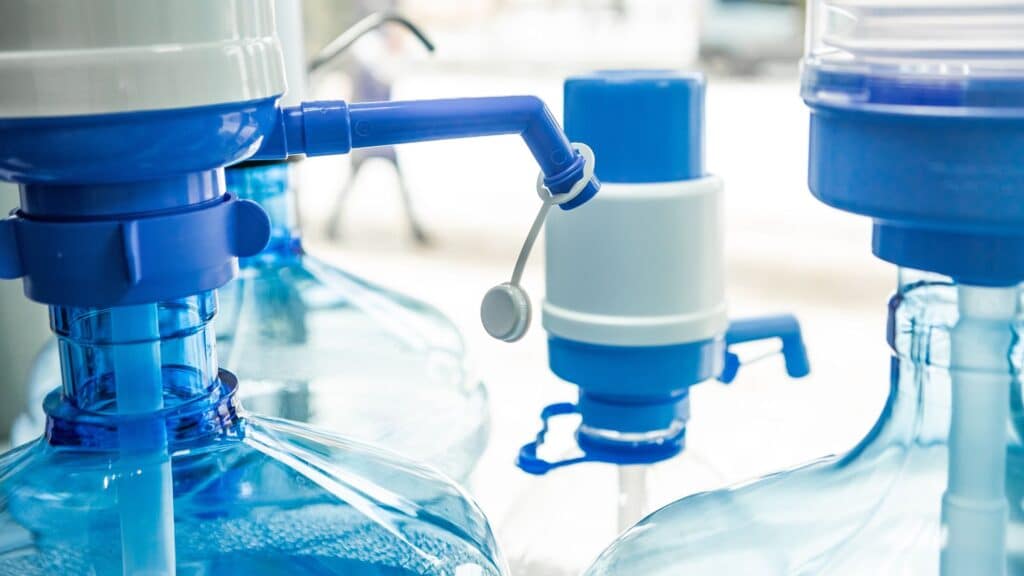
Pros of Purified Water:
- It has a neutral pH level that won’t interfere with the body’s natural pH balance. The pH scale is from 0 to 14; 7 is neutral, and both pure water and seawater have a pH of 7. Pure water has a slightly lower density than seawater, which may make it a better choice than seawater for some uses.
- It’s free from contaminants and minerals that can affect the taste or appearance of water-based drinks and foods.
- Purified water is safe for babies and young children who are under 6 months old, as well as for people who are susceptible to dehydration due to illness or medication use (e.g., diuretics).
Cons of Purified Water:
- May still contain trace contaminants: While the filtration process removes many impurities, it may not remove all contaminants. Some purification methods may also add minerals back into the water, impacting taste and quality.
- Quality varies: The quality of purified water can vary depending on the filtration method used and the source of the water. It’s important to check the labeling and packaging to ensure you get high-quality purified water.
- May not meet specific needs: Purified water may not be suitable for certain medical conditions or needs, such as rehydrating after illness or replenishing electrolytes. In these cases, distilled water may be a better option.
Distilled Water
While distilled water is the purest form, it’s not the best choice for drinking. That’s because distillation removes all minerals from the water including healthy ones that are important for human health.
Overall, while we don’t necessarily recommend drinking distilled water for adults, it can be useful for certain applications where purity is critical, such as in formula preparation. And if you’re an adult and drink distilled water, get enough minerals from other sources in your diet, so your body can take advantage of all key nutrients!
Distillation takes impurities from water by boiling it and then condensing the steam into liquid form. It’s a pretty simple process:
- Boil up some water in an open container.
- Let it cool down slightly (so that it turns into steam).
- Collect the steam as it condenses back into liquid form.
Pros of Distilled Water:
- Completely pure: Distilled water undergoes a process of boiling and condensation, which removes all impurities and contaminants. This makes it one of the purest forms of water available.
- Good for special needs: Distilled water is often recommended for people with specific medical conditions or those who need to replenish electrolytes. It’s also used in some medical procedures and the manufacturing certain products.
- No added minerals: Distilled water contains no minerals or other substances, making it a good option for those who need to avoid certain substances.
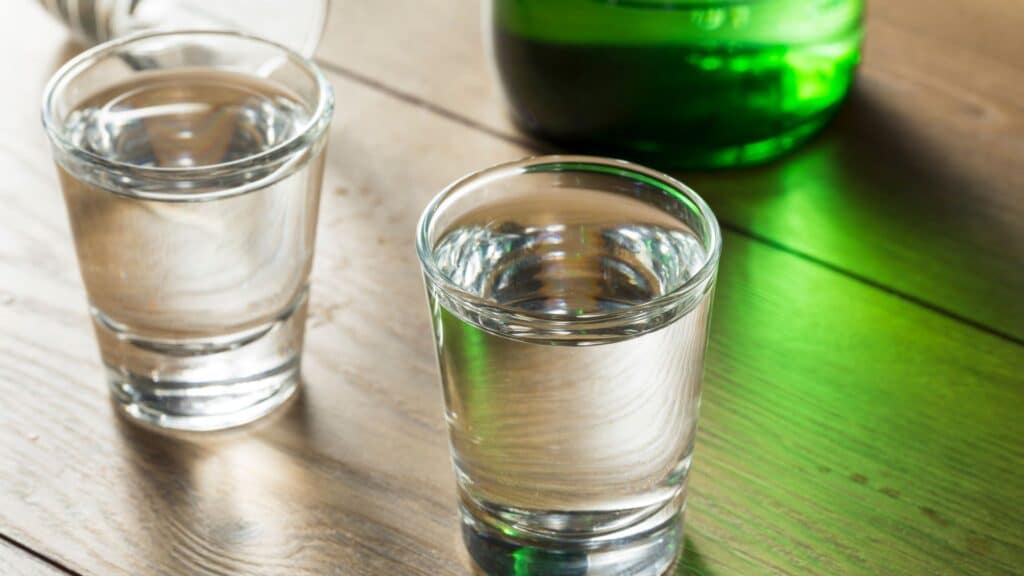
Cons of Distilled Water:
- Lack of minerals: The lack of minerals in distilled water can be a drawback, as it does not provide the essential nutrients and minerals our bodies need.
- Tasteless: Distilled water has a tasteless, pure flavor that some people find unappealing.
- More expensive: Compared to purified water, distilled water is generally more expensive and less readily available.
- Potential for re-contamination: If not stored properly, distilled water can become contaminated with impurities from the environment or from the containers it is stored in. It’s important to store distilled water in clean, airtight containers to ensure its purity.
Comparison between Purified and Distilled Water
Distilled and purified water are both types of water that come from the same source: rain. Purified water is filtered through a process that removes impurities and contaminants, while distilled water is vaporized using heat, then condensed back into a liquid state. Both types of water have similar properties, but they are not identical.
Distilled water has a lower mineral content than purified water because it’s been stripped of all the minerals during the distillation process. It’s also slightly acidic due to dissolved solids. This can cause mineral deposits to form on pipes and containers that hold distilled water over time, which means they will need to be replaced more often than those holding purified water.
Purified water has fewer additives than distilled water. Drinking purified water is ideal for sensitive skin types or people with health conditions like high blood pressure or heart disease because its lack of additives means it won’t affect their bodies negatively in any way.
Factors to Considered When Choosing When Choosing Between Distilled Water vs. Purified Water
1. Infant’s Age and Health
When choosing between purified and distilled water, you should consider the age and health of the infant.
If your child is under 6 months old, they are vulnerable to many types of infections. This is because they have yet to develop an immune system that can protect them against bacteria and other pathogens. As such, it is recommended that you use purified water for drinking or washing dishes (which can be done with a dishwasher).
However, if your child has been prescribed medication by their doctor, you must use distilled water. This is because some medications may react negatively with impurities in tap water.
2. Budget
You must consider your overall budget if you’re looking to buy purified or distilled water. Purified water is often more expensive than distilled water because it contains no minerals or flavor. In contrast, distilled water is more costly because it takes more energy than purified water.
3. Availability
When choosing between purified and distilled water, availability is a big factor. Purified water is generally more readily available than distilled water in supermarkets and grocery stores, so if you’re looking for the convenience of picking up your water at your local market, it’s probably best to use it.
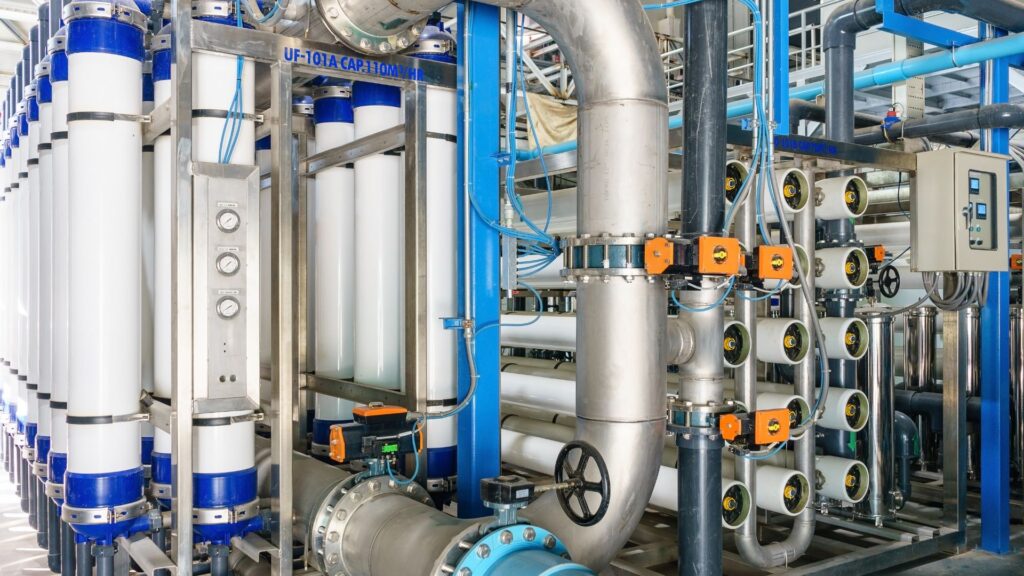
Advanced Water Filtration Systems for Infants
While purified and distilled water are undoubtedly great choices for infant use, advanced water filtration systems have emerged that combine the benefits of both purification and distillation. These systems feature multi-stage filtration processes incorporating distillation, reverse osmosis, and even UV radiation to ensure the utmost safety and health benefits of water.
How Advanced Water Filtration Systems Work
Advanced filtration systems use multiple stages of purification to ensure the water’s utmost safety. The initial stages involve typical purification processes such as sediment pre-filtration, carbon filtration and reverse osmosis. Sediment pre-filtration removes larger particles, while the carbon filter eliminates chlorine, organic impurities, and improves the water’s taste and odor. The reverse osmosis stage removes salts, lead, and other heavy metals.
The more advanced stages might incorporate distillation, where the water undergoes a process of boiling and condensation that eradicates almost all impurities. Some advanced filtration systems further include UV radiation as the final filtration process. It acts as a microbiological purifier by killing bacteria and viruses ensuring water is free of any microorganisms.
Advantages of Advanced Water Filtration Systems
The main advantage of these advanced systems is their ability to provide water that is not only free from impurities and harmful substances but also retains essential minerals beneficial to your infant’s health. Advanced water filtration systems offer a two-in-one solution: they perform a highly efficient purification process and simultaneously, maintain a balance of healthy minerals in the water.
Furthermore, they can be conveniently installed at home, meaning you have continuous access to high-quality, safe drinking water. This removes the burden of constantly purchasing purified or distilled water – a cost and environment-friendly alternative.
Balancing your infant’s health and safety with the practicality of everyday life is not an easy task. However, taking the time to understand and navigate the different water types and filtration options can significantly improve your child’s health and development. Advanced water filtration systems offer a modern solution that combines the benefits of both purified and distilled water, potentially serving as the best of both worlds. Nevertheless, when making your decision, always consult a healthcare professional or pediatrician to ensure the choice is suitable for your child’s specific needs.
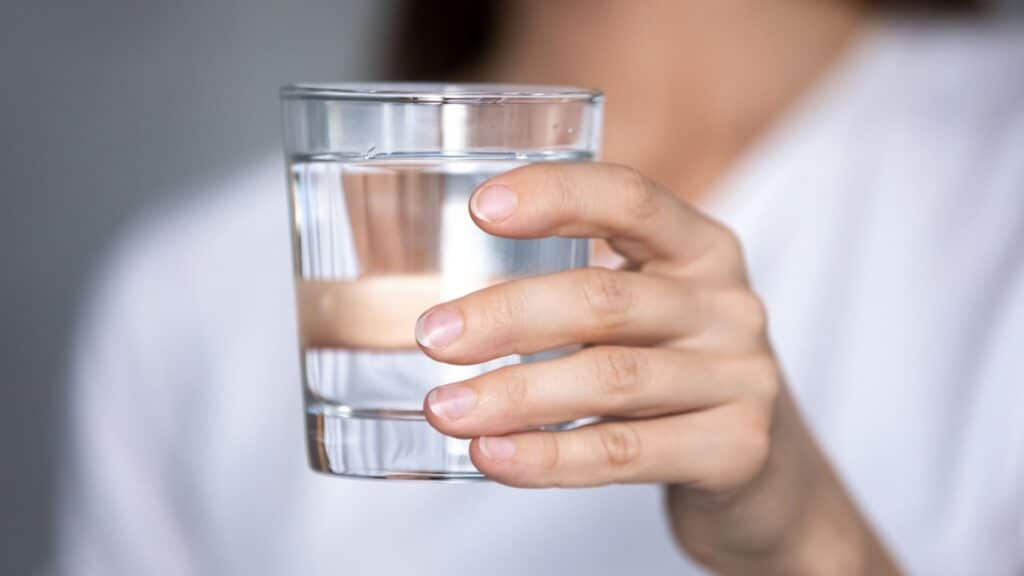
Expert Opinions and Recommendations
Expert opinions and recommendations are important to the topic and can provide valuable insights for parents or caregivers when deciding on the best water for baby formula. Here is a summary of the expert opinions and recommendations:
1. Pediatricians’ Perspectives
Pediatricians generally recommend using purified or distilled water for mixing liquid concentrate formula or powdered formula to ensure the water is free from contaminants.
They may also recommend using water fortified with essential minerals to support infants’ growth and development.
2. Insights From Baby Care Specialists
Baby care specialists often recommend using purified water designed for infants, as it is free from contaminants and contains the necessary minerals for healthy growth and development.
They may also suggest boiling tap water and letting it cool before mixing liquid concentrate formula or powdered formula as an alternative to purified or distilled water.

Practical Tips for Preparing Water for Baby Formula
When preparing water for babies, it’s crucial to prioritize their safety and well-being. Here are some practical tips to consider:
- Boil water before use: If using tap water or unsure about the safety of your water source, boil it for at least 1 minute and let it cool to room temperature before using it to mix formula powder or for any other baby-related purpose.
- Clean and sterilize containers: Ensure the containers you use to store mixed formula or prepared formula are clean. Wash them with hot soapy water, rinse thoroughly, and air dry before use.
- Store water in a cool, dark place: Store the prepared formula in a cool, dark place away from direct sunlight to prevent the growth of bacteria and other microorganisms.
- Use within 24 hours: Once you have prepared mixed formula, it is best to use it within 24 hours to ensure its freshness and safety. Discard unused formula afterward.
Bottled Water Recommendations
- Choose water designed for infants: Opt for bottled water specifically designed for infants, as it is free from contaminants and contains the necessary minerals for healthy growth and development.
- Check the label: Look for water that has been purified using methods like reverse osmosis, UV disinfection, or filtration. Ensure the water is low in sodium and fluoride, as high levels can harm infants.
- Examine the packaging: Choose water in BPA-free bottles to avoid potential exposure to harmful chemicals.
- Store bottled water properly: Keep bottled water in a cool, dark place away from direct sunlight, and follow the manufacturer’s guidelines for storage and expiration dates. Consider using low-fluoride bottled water for preparing your baby’s formula for added safety.
Precautions for Tap Water Usage
- Test your tap water: If you plan to use tap water for your baby, have it tested for contaminants, such as lead, bacteria, and nitrates. This can help you determine if additional filtration or purification is necessary for preparing the baby’s formula.
- Install a water filter: If your tap water contains contaminants, consider installing a certified water filter to remove the specific impurities in your water.
- Run the tap before use: When using tap water, run the tap for a few seconds before collecting the water to flush out any contaminants that may have accumulated in the pipes.
- Avoid using hot tap water: Do not use hot tap water for preparing water for baby formula, as it can contain higher contaminants. Always use cold tap water and heat it separately if needed.
- Consider low-fluoride bottled water: If you are concerned about tap water quality, low-fluoride bottled water can be a safer alternative for preparing your baby’s formula.
By following these practical tips and guidelines, you can ensure that the water you provide for your baby is safe, clean, and suitable for their needs.
Exploring the Use of Natural Spring Water for Babies
Natural spring water is another alternative to consider when choosing the right water for your little ones. Originating from an underground source and naturally filtered by the earth, spring water typically contains essential minerals like calcium, potassium, and magnesium, which are vital for your baby’s growth and development.
While they occur naturally, these minerals must still be balanced to ensure they don’t exceed safe levels for infants. Hence, not all spring water on the market is suitable for babies. Always choose spring water specially designed for infants. These are usually carefully sourced and processed to the highest standards, ensuring their safe mineral composition and absence of contaminants.
Moreover, natural spring water is generally considered crisp and fresh to the taste, which, over time, might make a difference in encouraging your little one to stay hydrated. However, it’s important to remember that even the purest natural source can be affected by environmental factors. Therefore, appropriate treatment, such as UV radiation or micron filtration, is applied to eliminate any potential contaminants, including bacteria or viruses.
There are also eco-friendly advantages to consider. The process of bottling natural spring water requires less filtration and thus less energy compared to purified water, leading to a smaller carbon footprint.
Taking into consideration the freshness, benefits of natural minerals, and the green aspect, spring water could be a suitable choice for your baby. Still, it’s essential to consult with pediatricians or healthcare professionals before making a switch to ensure it aligns with your baby’s health needs and dietary requirements.
While distilled and purified water are safe choices for your baby, exploring the option of natural spring water is valuable for its unique benefits. When it comes to deciding the best for your child, remember safety is paramount, and any decision should prioritize their health needs over anything else.
Conclusion
In conclusion, purified water is safe for infants because it removes impurities and contaminants. Purified water still contains minerals beneficial for their health but in lower concentrations than regular water. On the other hand, distilled water is thoroughly processed to remove all minerals and contaminants. It can also strip it of essential minerals that infants need to grow and develop properly.
Ultimately, the choice between distilled or purified water for infant use will depend on each family’s individual needs and preferences.
Families who want their children to receive the minerals and nutrients found in tap water should choose purified water. In contrast, other families may choose distilled water if they are concerned about potential contaminants.
It’s important to consult with a pediatrician before deciding, as they can guide what type of water is best for your baby, considering their specific health needs and any underlying medical conditions.
No matter what you choose, it’s important to ensure the water you use is clean. Check the water source and ensure containers are clean before using them.
If you have any questions, please feel free to let me know in the comments below.



